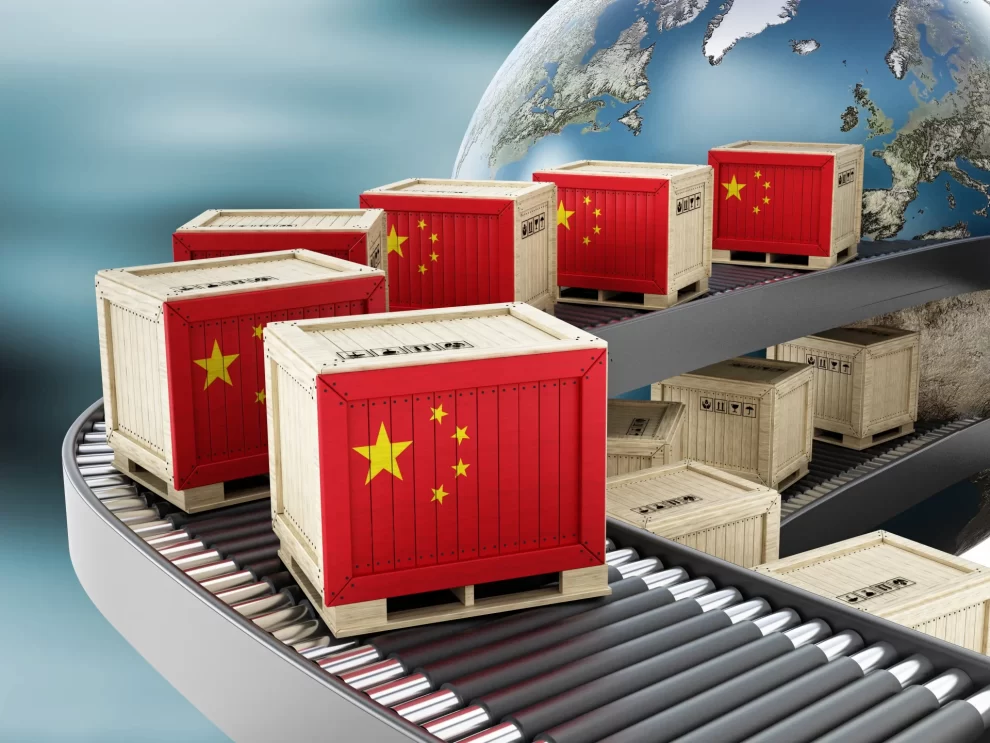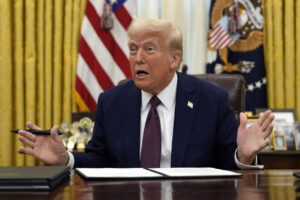Summary
- China is important to the United States as our third-largest export market, after Canada and Mexico.
- Chinese consumers have turned cautious in their spending, an idea reinforced by a recent Wall Street Journal story reporting that people are spending less even on staples such as toothbrushes and shampoo.
- China won’t collapse, but it’s hard to make a good argument for very strong growth with their current leadership.
China’s economy should grow by 5.5% in 2023, according to the consensus of professional forecasters—but the consensus seems overly optimistic. That growth rate is a drop from the double-digit gains of the early 2000s and from the seven percent average in the early 2010s, but it may not be a large enough drop.
China is important to the United States as our third-largest export market, after Canada and Mexico. Although it buys seven percent of our exports, it’s even more important to West Coast states, purchasing 24% of the products from Oregon and Washington. Those states’ dependence on China comes mostly from Intel (Oregon) and Boeing (Washington).
The 5.5% growth forecast was compiled by FocusEconomics, which surveys economists around the world to compute average forecasts for many countries, along with some commentary and background statistics. For China they survey about 50 separate forecasters, some in the country and some located at major financial institutions around the world. Thus, this constitutes the best description of the current expert opinion. But experts can be wrong, and there’s reason to be suspicious.
The key points that most of these economists are making is that the global demand for goods (as opposed to services) is weak, Chinese consumers are cautious, and the country’s property sector is in decline. All of these points are valid.
The world’s consumers desire experiences, coming out of the Covid pandemic, more than they desire physical products. Air travel has strengthened, the Taylor Swift concert tour is grossing huge amounts, and the Women’s World Cup attendance is breaking records. These are services. Some t-shirts will be sold to go along with the experiences, but the big bucks are not in goods. That bodes poorly for such a goods exporter as China.
Chinese consumers have turned cautious in their spending, an idea reinforced by a recent Wall Street Journal story reporting that people are spending less even on staples such as toothbrushes and shampoo. Chinese in the past few decades have been big savers, partly because the country has a very weak social safety net and partly because their incomes rose faster than habits typically change. That was changing, with the country transitioning to more consumer-led growth. Then the pandemic cost many people their jobs, so optimism dropped.
They bought houses and apartments as investments because the country lacks the highly developed financial investment structure common in Western countries. Without trusted advisors talking about stocks and mutual funds, people bought real estate. But overbuilding and shoddy construction soured that strategy.
Although the country is bouncing back from the worst of the pandemic woes, growth is soft. Less mentioned by my fellow economists are the challenges that have arisen from China’s political changes. President Xi Jinping has asserted more political control over business while triggering worries about a possible armed conflict over Taiwan.
Political control over business damages economies both long term and short-term. In the long term, industrial policy always slows down economic growth as businesses cannot adapt to change quickly nor even optimize for current conditions when the government is determining the composition of the economy.
In the short-term, heavy-handed government regulations deters investment and hiring. Caution rules the boardrooms, as well as the garages of would-be entrepreneurs.
Xi’s rumbling about bringing Taiwan back under mainland control coincides with many companies having been burned by supply chain breakdowns during the pandemic. Even with a conciliatory Chinese president, many Western business leaders would be looking to re-shore or near-shore their supply chains. With the possibility that the United States and other major countries would impose embargoes on China, companies are racing to move operations out of that country.
Despite all of the negatives, though, China has a lot going for it. It’s a hugely successful manufacturing center. Companies that want to have products manufactured can find not only the factory to assemble it, but all of the component suppliers so vital to successful manufacturing. There are plenty of skilled, experienced workers who still earn less than American and European wages. Transportation infrastructure is good. These issues rise to the top when comparing China to alternatives such as Vietnam or India.
China won’t collapse, but it’s hard to make a good argument for very strong growth with their current leadership. That removes a major positive for the U.S. economy, and especially Western states. It’s not quite a negative, but it takes away stimulus that we have gotten used to.
Source : Seeking Alpha










